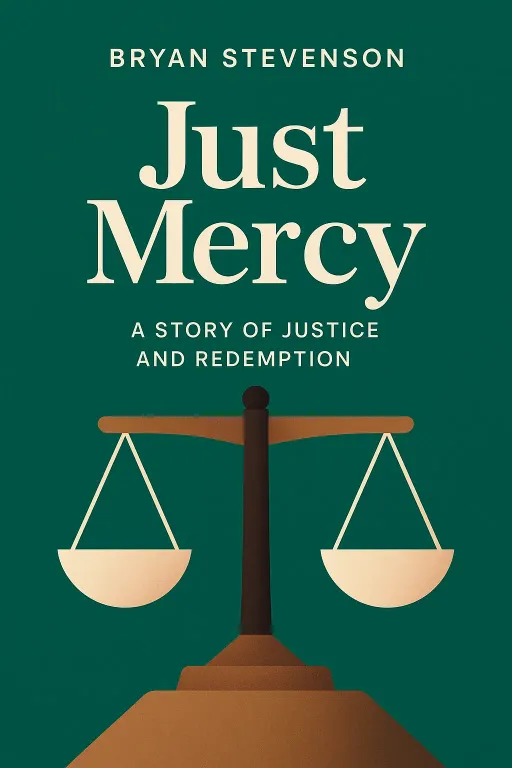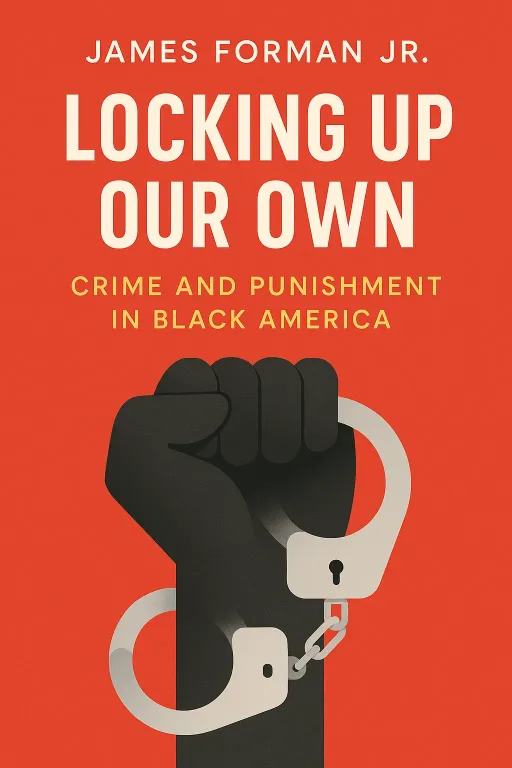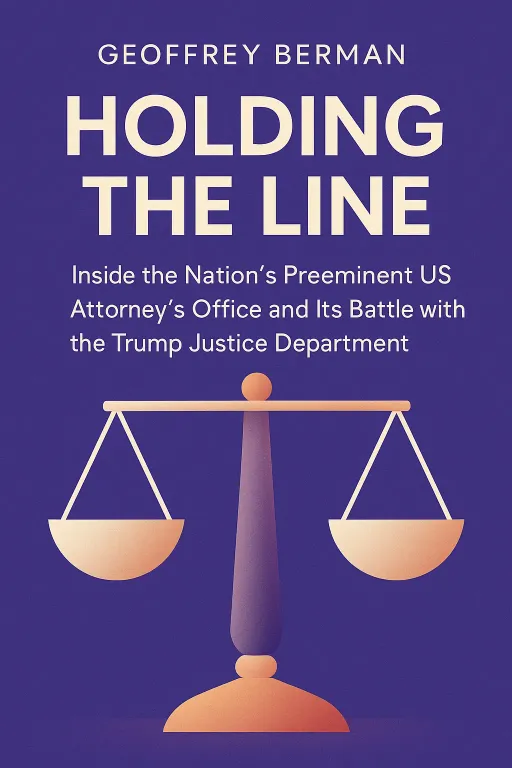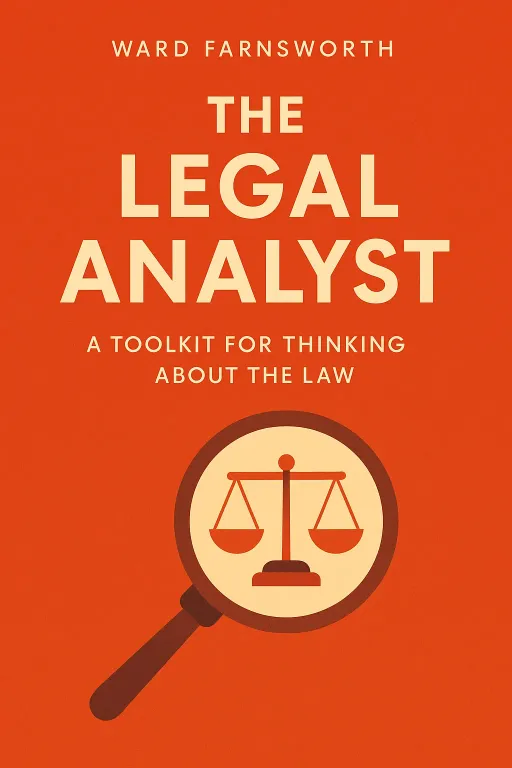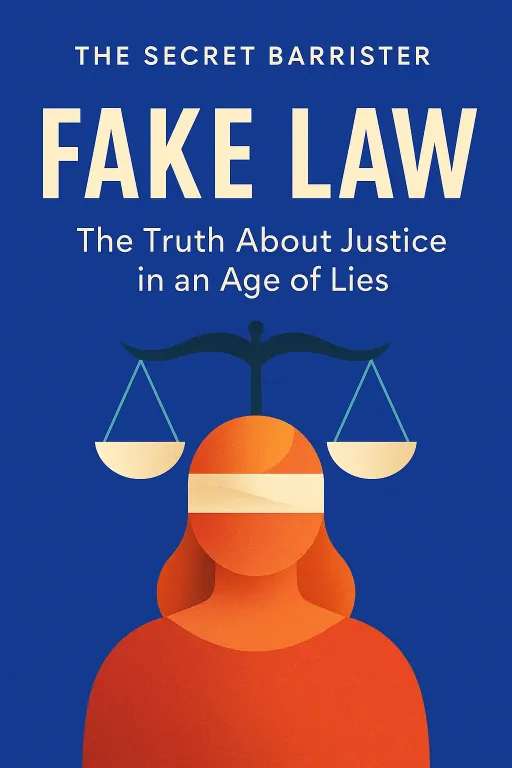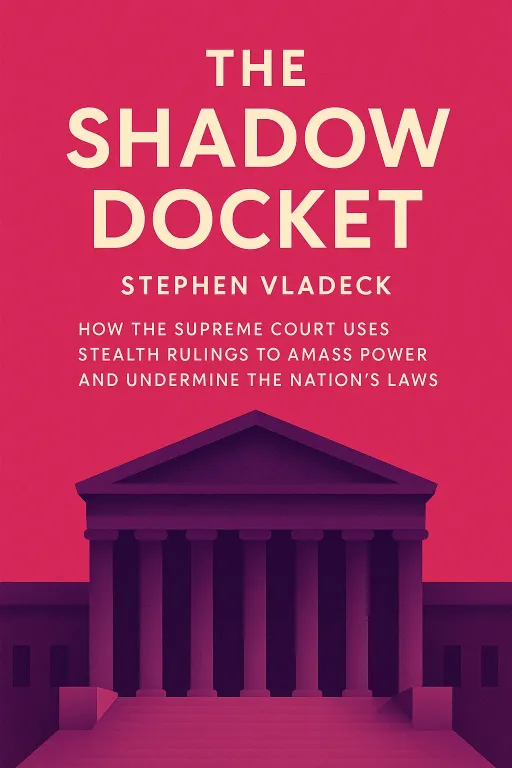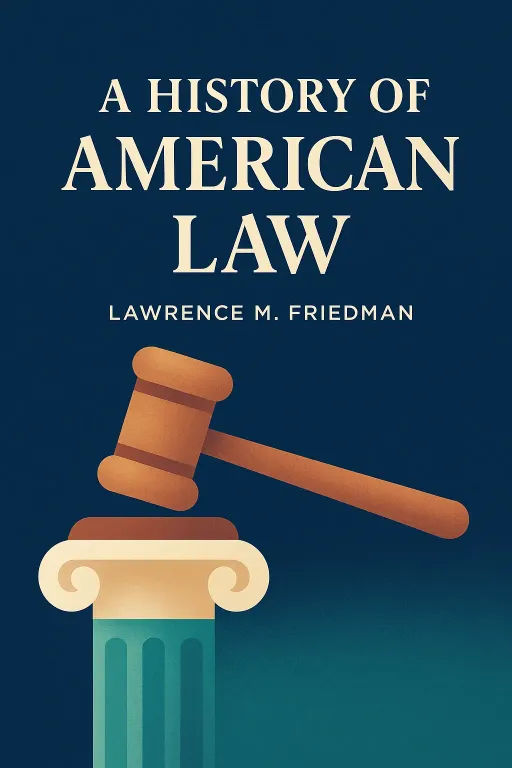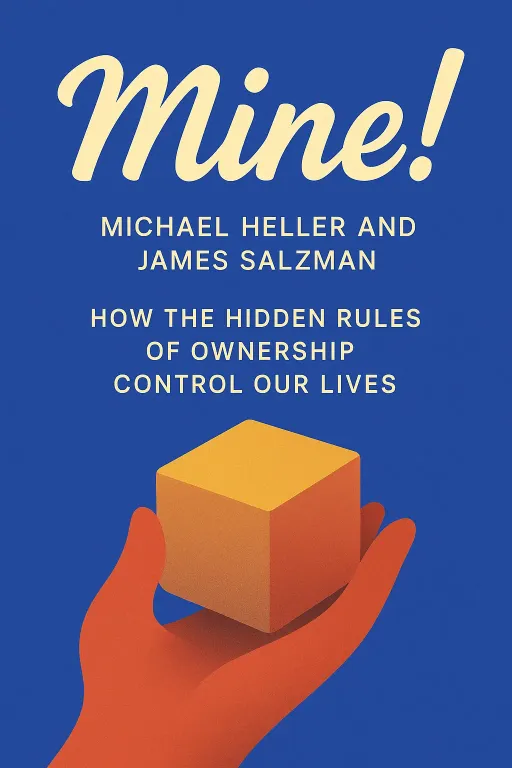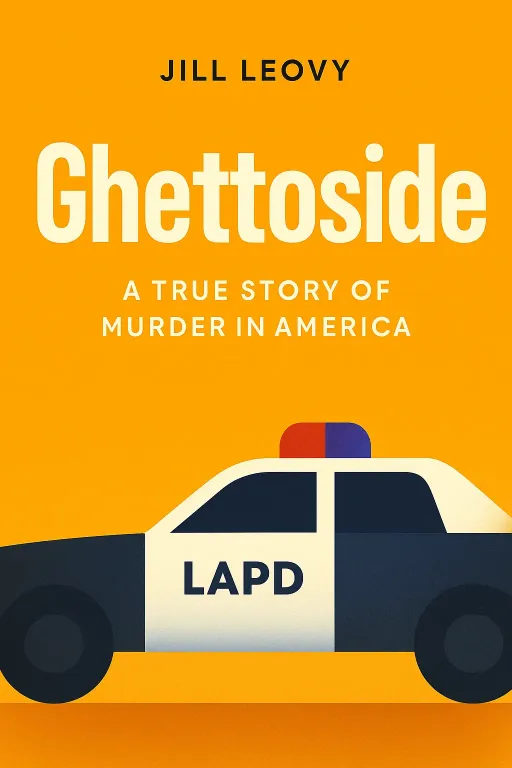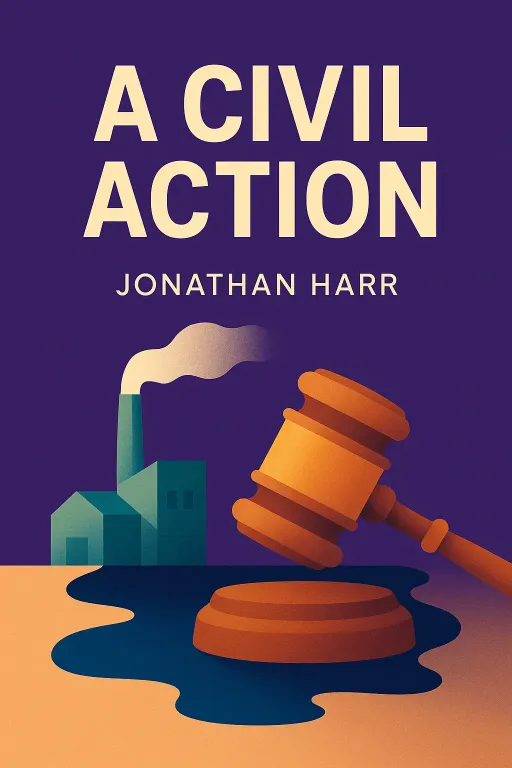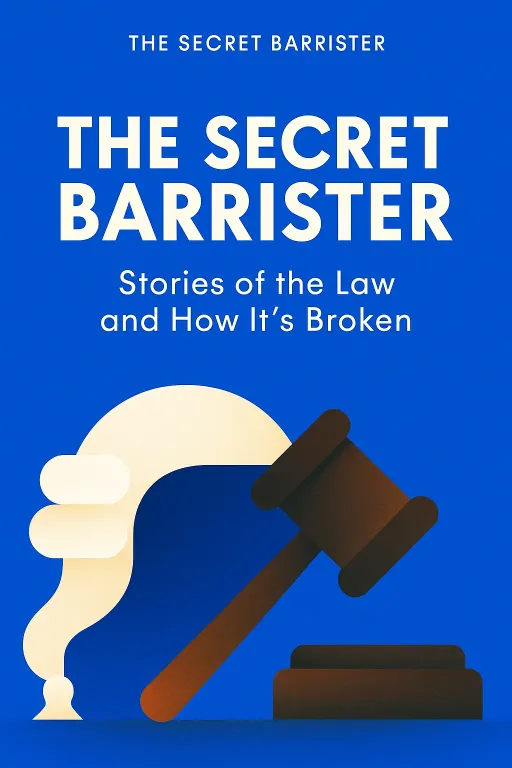
The Justice Lottery
14 minStories of the Law and How It’s Broken
Golden Hook & Introduction
SECTION
Michael: A parliamentary report in the UK opened with a terrifying six-word sentence: "The criminal justice system is close to breaking point." But what if it's already broken? And what if you, an innocent person, are the one who has to pay the price—literally? Kevin: Wow, that’s a heavy start. That’s the kind of line that makes you sit up straight. It sounds like the premise for a thriller, but you’re saying this is reality. Michael: It’s the terrifying reality explored in The Secret Barrister: Stories of the Law and How It’s Broken. Kevin: And this isn't just some academic writing a critique. The author is an anonymous, practicing criminal barrister in the UK. They're on the front lines every single day, and the book actually won several major non-fiction awards, which is incredible for an author no one officially knows. Michael: Exactly. They've maintained that anonymity for years, all while exposing the system from the inside. And their story begins not in the grand, wig-and-gown Crown Courts we see on TV, but in a place they call 'The Wild West'.
The Broken Machinery: Why the System Fails Before a Trial Even Begins
SECTION
Kevin: The Wild West? What does that even mean in a legal context? Are we talking duels at dawn? Michael: Close. We're talking about the magistrates' courts. These are the local courts that handle over 95% of all criminal cases in England and Wales. Everything from shoplifting to the first hearing for a murder charge starts here. And the author’s point is that this foundational level of our justice system is a chaotic, amateur-run sham. Kevin: Hold on, amateur? I thought judges were, you know, highly trained legal experts. Michael: That’s the first shocking revelation. The people making the decisions in these courts, the magistrates, are for the most part unpaid volunteers. They have no legal qualifications. No law degree. They're given a few days of training and then handed the power to decide people's guilt or innocence, and whether to send them to prison. Kevin: That is absolutely insane. So it's like having a volunteer-run hospital emergency room? Well-meaning people, I'm sure, but you wouldn't want them performing surgery. Michael: That's a perfect analogy. The book describes it as a 'sausage-factory paradigm of justice'. And the decisions that come out of it can be completely unpredictable and illogical. There’s a story in the book about a 19-year-old kid named Kyle. He’s a repeat offender, caught in a stolen car, and he’s expecting to go to prison. He’s resigned to it. Kevin: Okay, so he’s not exactly a sympathetic character, but he’s in the system. Michael: Right. But the magistrates, three of them, decide they want to save him. They spend hours trying to persuade him to accept a probation order instead of prison. They bring in his probation officer. When that doesn't work, they get his mum on the phone and bring her down to the court to talk to him. It's this huge, emotional, drawn-out effort to show him they care. Kevin: So they're really trying to do the right thing, to rehabilitate him. Michael: It seems that way. After hours of this, Kyle finally, reluctantly, agrees. He’ll take the probation. The magistrates nod sagely, retire to their room to formalize the sentence... and then they come back out and send him to prison for nine weeks. Kevin: What? After all that? Why? Michael: Nobody knows. There was no explanation. The defense lawyer was stunned, the prosecutor was confused. The author’s point is that this isn't justice; it's a lottery. And this is the court where life-altering decisions are made every single day. The demographics are also a huge issue. The magistrates are overwhelmingly white, middle-class, and over sixty, while the defendants are often young, poor, and from minority backgrounds. There’s a massive disconnect. Kevin: I can see how that would lead to problems. But what happens when they get a decision wrong on something really critical, like whether to keep someone locked up before their trial? Michael: That’s where it gets even more devastating. This is the concept of being held on remand. If magistrates refuse you bail, you are sent to prison to wait for your trial, which could be months, even over a year, away. You haven't been found guilty of anything. You are, in the eyes of the law, innocent. Kevin: But you’re in prison. Michael: Exactly. The book tells the story of a man named Rio, accused of rape by his ex-partner. He’s refused bail and sent to prison. The author, as a junior barrister, goes to visit him. And Rio isn't talking about legal strategy. He's talking about losing his job. About his new girlfriend, Jade, and how this is destroying their relationship. About his son. He’s lost his entire life, all while being presumed innocent. Kevin: That's heartbreaking. What happened to him? Michael: After a year in prison, his trial finally happens. And he's acquitted. Found not guilty on all charges. The prosecution's case fell apart because they'd failed to disclose crucial evidence that undermined the complainant's story. So he was innocent all along. Kevin: So the system locked up an innocent man for a year, destroyed his life, and then just... let him go? Michael: With a pat on the back and £46 in his pocket. The book makes the point that these bail hearings are the most undervalued part of the process, yet they have life-changing consequences. And the chaos of the magistrates' court is where these crucial decisions are made, often based on incomplete information and a pro-prosecution bias.
The Human Cost of a Failing System: Prosecution & Defense
SECTION
Kevin: It's horrifying to think of innocent people being locked up. But the book argues the other side is just as broken—that the guilty are walking free. How does that happen? Michael: The same root cause: chronic underfunding and neglect, this time hitting the Crown Prosecution Service, or CPS. They are the state's lawyers, responsible for prosecuting cases. And they are on their knees. The author describes a system where, due to a third of their staff being cut, cases are collapsing constantly. Kevin: So it's just a resource issue? Michael: It's a resource issue with a devastating human cost. The book tells the story of a fourteen-year-old girl, Amy Jackson. She's vulnerable, living in a care home. She falls in with a violent, manipulative man named Rob McCulloch. He gets her addicted to heroin, abuses her physically and sexually for years. It's a horrific, prolonged nightmare. Kevin: Oh man. That’s awful. Michael: One day, he beats her so badly that a passing taxi driver thinks she's dead and calls an ambulance. This is the catalyst. Amy finally finds the courage to report everything to the police. Rob is arrested, and the evidence is overwhelming. It’s a slam-dunk case. Kevin: Okay, so at least this time, the system is going to get the bad guy. Michael: You'd think so. The case goes to the Crown Court. The author is the prosecutor. But as the trial date approaches, there's a problem. The evidence file—the witness statements, the photos of Amy's injuries, the medical reports—is missing. The CPS has lost it. Kevin: They just... lost the file? For a case that serious? Michael: Vanished. The caseworker, Megan, is in tears on the phone, she's been searching everywhere. The trial is adjourned. Weeks go by. The file never turns up. The judge has no choice. The case is dismissed. Rob McCulloch, a man who tortured a teenage girl for years, walks out of court a free man. Kevin: That is sickening. Amy went through all that, found the courage to speak up, and the system just... failed her. Michael: Utterly. The author writes about the shame of having to face her, knowing the system he represents is the reason her abuser is free. And this isn't a one-off. It happens every day. So the prosecution is broken. What about the defense? Aren't they supposed to be the check on the system? Kevin: Yeah, that's what I was thinking. If the prosecution is incompetent, a good defense lawyer should be ableto protect the innocent, right? Michael: In theory. But the defense side is just as broken, creating what the author calls a two-tiered system of justice. On one hand, you have dedicated, brilliant, but criminally underpaid and overworked legal aid solicitors who are burning out. On the other, you have what the author calls 'vulture solicitors'. Kevin: Vulture solicitors? That sounds ominous. Michael: They are. These are firms that prey on the most vulnerable defendants. They poach clients from police stations, often with false promises, and then do absolutely nothing for them. The book gives the example of a firm called Keres & Co. and a client named Darius. Darius is a young man with severe learning difficulties and mental health issues. He's barely able to communicate. He gets into an argument with his dad over cigarette money, and he's charged with robbery. Kevin: Robbery? For an argument with his dad? Michael: It's a ridiculous charge, but Keres & Co. does nothing. They don't visit him in prison. They don't apply for bail. They don't arrange for an intermediary to help him understand the proceedings. Darius, who is functionally a child, is left to rot in an adult prison for nearly two months for a crime he didn't commit and couldn't comprehend. Kevin: And Keres & Co. gets paid for this? Michael: They get a fixed fee from legal aid. The incentive is to do the least amount of work possible for the maximum number of clients. Darius is eventually freed only because other, more ethical barristers get involved and persuade the CPS to drop the case. But the story shows how the most vulnerable people are left defenseless by the very people paid to defend them.
The Great Deception: The Innocence Tax & The War on Truth
SECTION
Michael: And this crisis in defense is fueled by a huge public deception about legal aid. Kevin: Right, the 'fat cat lawyer' myth. The idea that these lawyers are getting rich off the taxpayer while defending criminals. The newspapers are full of it. Michael: It's a complete fabrication, and the book demolishes it. The author breaks down the actual fees. A junior barrister's starting salary can be as low as £12,000 a year. For a complex Crown Court case that takes months of work, a solicitor might get a fixed fee that works out to less than the minimum wage per hour. The system is running on the goodwill of professionals who are subsidizing the state. Kevin: So the 'generous legal aid system' is a lie. But the book talks about something even more sinister, something called the 'Innocence Tax'. What is that? Michael: This is maybe the most chilling concept in the entire book. Let's say you're accused of a crime. You're not poor enough to qualify for legal aid, but you're not rich either. You're a teacher, a nurse, a junior doctor. You have to pay for your own defense. You re-mortgage your house, you drain your life savings, you borrow from family. You spend, say, £50,000 to prove your innocence. Kevin: Okay, a terrible situation, but you're found not guilty. You get that money back, right? The state wrongly accused you. Michael: No. You don't. Since a law change in 2012, if you are acquitted in a Crown Court, you are not reimbursed for your legal costs. You are financially punished for the 'crime' of being wrongly accused. That is the Innocence Tax. Kevin: That can't be right. You're bankrupted for being innocent? Michael: That's it exactly. The book tells the story of a parent involved in a tragic driving accident where a child dies. They are charged with causing death by dangerous driving. They spend their life savings on experts to prove they weren't speeding, that it was a tragic accident. The jury finds them not guilty. But their savings are gone forever. They are financially ruined by their own innocence. Kevin: After hearing all this, it makes you wonder... is the trial system even about finding the truth? It sounds more like a brutal, expensive game. Michael: That's the huge philosophical question at the end of the book. The author contrasts our adversarial system—which is essentially a battle between two sides, prosecution and defense—with the inquisitorial system used in much of Europe, which is supposed to be a neutral inquiry into the truth, led by a judge. Kevin: And which one is better? Michael: The author makes a powerful case for our flawed adversarial system. Why? Because the state is not a neutral, all-knowing, benevolent seeker of truth. As we've seen with the cases of Rio, Amy, and Darius, the state is fallible, biased, under-resourced, and sometimes incompetent or malicious. An independent defense, whose only job is to fight for the accused, is the last, best bulwark against the power of the state. Kevin: So the fight is necessary, even if it's ugly. Michael: It's essential. But it comes at a cost. The author describes defending a man named Jay, accused by his adult daughters of horrific abuse years earlier. The author personally believes Jay is guilty. But his job isn't to judge. His job is to test the prosecution's case. He and his senior barrister find inconsistencies in the daughters' stories from years of social services records, and they use those to destroy their credibility on the stand. Jay is acquitted. Kevin: Wow. So a man he thought was guilty walked free because he did his job well. Michael: Exactly. It's a brutal moral compromise. But the alternative—a system where the state investigates, prosecutes, and judges itself—is far more dangerous. The adversarial system accepts that it's better for ten guilty men to go free than for one innocent man to be convicted. The tragedy is that our current system is so broken, it's managing to do both at the same time.
Synthesis & Takeaways
SECTION
Kevin: So the whole system—from the amateur judges at the start, to the broken prosecution and defense in the middle, to the financial punishment for the innocent at the end—is just fundamentally failing. It's a bleak picture. Michael: It is bleak, but the author's argument isn't one of despair. It's a call to arms. The core message is that the system is a reflection of what society is willing to tolerate. We've allowed it to be starved of funds, we've bought into the political and media lies about 'fat cat lawyers' and 'soft justice', and we've become complacent because we think it only affects 'criminals'. Kevin: That's a powerful point. The idea that this is someone else's problem. Michael: And the book shatters that illusion. The final chapter tells the fictional, but entirely plausible, story of James, a junior doctor, who gets wrongly identified in a bar fight. One mistake, one lie, one piece of lost evidence, and this ordinary man's life is destroyed. He's convicted, imprisoned for years, loses his wife, his career. When he's finally exonerated, he's denied compensation. He is, in the state's words, 'not guilty, but not quite innocent enough.' Kevin: Chilling. It could happen to anyone. Michael: That's the point. The author argues that the first step isn't a massive legal reform bill. It's public legal education. We have to understand how broken the system is, and how it affects all of us, before we can demand that our leaders fix it. We have to stop seeing justice as a service for other people. Kevin: And reading this book is a powerful first step. It’s not an easy read, emotionally, but it feels essential. It forces you to ask: what kind of justice do we actually want? And are we willing to pay for it? Michael: This is Aibrary, signing off.
